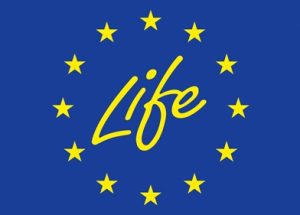 The LIFE programme is the EU’s funding instrument for the environment and climate action. The general objective of LIFE is to contribute to the implementation, updating and development of EU environmental and climate policy and legislation by co-financing projects with European added value.
The LIFE programme is the EU’s funding instrument for the environment and climate action. The general objective of LIFE is to contribute to the implementation, updating and development of EU environmental and climate policy and legislation by co-financing projects with European added value.
LIFE began in 1992 and to date there have been four complete phases of the programme (LIFE I: 1992-1995, LIFE II: 1996-1999, LIFE III: 2000-2006 and LIFE+: 2007-2013). During this period, LIFE has co-financed some 3954 projects across the EU, contributing approximately €3.1 billion to the protection of the environment.
The European Commission (DG Environment and DG Climate Action) manages the LIFE programme. The European Climate, Environment and Infrastructure Executive Agency (CINEA) is the successor organisation of the Innovation and Networks Executive Agency (INEA). Officially established on 15 February 2021, it has started its activities on 1 April 2021 in order to implement parts of certain EU programmes. “Department D – Natural resources, climate, sustainable blue economy and clean energy” of the CINEA Agency is currently responsible for the LIFE programme.
LIFE 2014-2020 Regulation
The LIFE 2014-2020 Regulation (EC) No 1293/2013 was published in the Official Journal L 347/185 of 20 December 2013. The Regulation establishes the Environment and Climate Action sub-programmes of the LIFE Programme for the next funding period, 2014–2020. The budget for the period is set at €3.4 billion in current prices.
View: LIFE 2014-2020 Regulation (EU) No 1293/2013
The LIFE programme will contribute to sustainable development and to the achievement of the objectives and targets of the Europe 2020 Strategy, the 7th Union Environmental Action Programme and other relevant EU environment and climate strategies and plans.
The ‘Environment’ strand of the new programme covers three priority areas: environment and resource efficiency; nature and biodiversity; and environmental governance and information. The ‘Climate Action’ strand covers climate change mitigation; climate change adaptation; and climate governance and information.
The programme also consists of a new category of projects, jointly funded integrated projects, which will operate on a large territorial scale. These projects will aim to implement environmental and climate policy and to better integrate such policy aims into other policy areas.
The new regulation also establishes eligibility and the criteria for awards as well as a basis for selecting projects. The programme is open to the participation of third countries and provides for activities outside the EU. It also provides a framework for cooperation with international organisations.
In June 2017, the European Commission will carry out an external and independent mid-term evaluation report and by December 2023 it will complete an ex-post evaluation report covering the implementation and results of the LIFE Programme.

